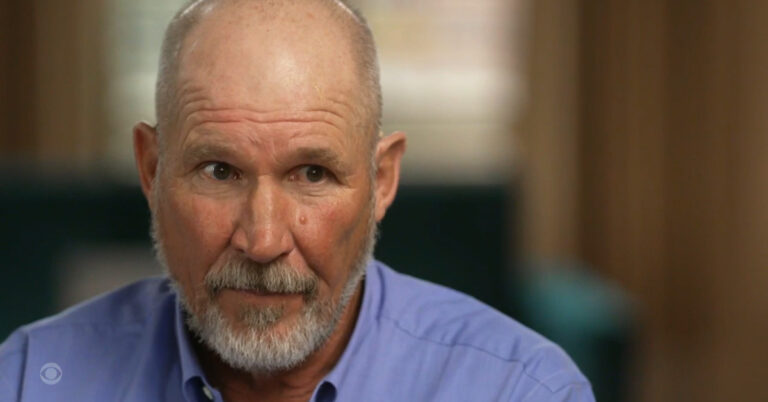EV Mandate Opposition Grows: Car Dealers Intensify Fight

Table of Contents
Economic Concerns for Dealerships
The transition to an EV-centric market poses a significant threat to established car dealership business models. The economic realities are causing considerable anxiety within the automotive industry.
Impact on Profit Margins
Profit margins on EVs are often considerably lower than those on internal combustion engine (ICE) vehicles. This is primarily due to several factors:
- Lower service revenue from reduced maintenance: EVs have fewer moving parts and require less frequent maintenance, directly impacting the crucial service revenue stream for dealerships.
- Increased inventory costs for EVs requiring specialized equipment: Dealerships need to invest in specialized tools and equipment to service EV batteries and electric powertrains, increasing inventory and operational costs.
- Potential for decreased sales volume if consumer adoption lags: If the anticipated surge in EV demand fails to materialize, dealerships face the risk of reduced overall sales volume and decreased profitability. This uncertainty is a major source of the opposition to EV mandates.
Investment in Infrastructure and Training
The shift to EVs demands significant investments in new infrastructure and employee retraining. This represents a substantial financial burden for many dealerships, especially smaller independent operations.
- High upfront costs for charging station installation and maintenance: Installing and maintaining sufficient charging infrastructure, both fast charging and Level 2, represents a considerable capital outlay.
- Need for specialized technician training on EV battery systems and electric powertrains: Dealership technicians require specialized training to diagnose and repair EV components, adding to training costs and potentially disrupting service operations.
- Uncertainty surrounding government support and incentives for infrastructure upgrades: The lack of clear and consistent government support for dealership infrastructure upgrades adds to the financial risk and uncertainty driving opposition to the EV mandate.
Concerns About Consumer Readiness and Demand
Beyond the economic concerns, there are significant questions regarding consumer readiness and the current level of demand for electric vehicles.
Range Anxiety and Charging Infrastructure Gaps
Range anxiety – the fear of running out of battery power – remains a significant barrier to EV adoption for many potential buyers. This is exacerbated by the still limited availability of reliable charging infrastructure, particularly outside of urban areas.
- Need for significant expansion of public charging networks: A widespread, reliable, and convenient public charging network is crucial to address range anxiety and encourage wider EV adoption.
- Concerns about charging speeds and reliability: The speed and reliability of charging stations are critical factors influencing consumer confidence and the overall adoption rate of electric vehicles.
- Lack of consumer education regarding EV technology and benefits: Clear and accessible consumer education is needed to dispel myths and highlight the benefits of EV ownership, driving demand for these vehicles.
High Purchase Price and Affordability Issues
The higher upfront cost of EVs compared to gasoline-powered vehicles is another major obstacle to widespread adoption. This price difference disproportionately impacts lower-income consumers.
- Limited availability of affordable EVs: The current market lacks a sufficient range of affordable EVs to cater to the needs and budgets of a broader consumer base.
- Need for government subsidies and incentives to reduce the price barrier: Government incentives and subsidies are crucial to reducing the price barrier and making EVs more accessible to a wider range of consumers.
- Impact on the used car market and trade-in values: The impact of the EV transition on used car values and trade-in programs also needs careful consideration.
The Role of the Dealer Network in the EV Transition
Despite the opposition, the existing dealer network is crucial for the successful transition to EVs. Their established infrastructure and expertise can play a vital role in driving adoption.
Dealers as Crucial to EV Adoption
Dealerships possess invaluable expertise and established customer relationships. Their involvement is essential for consumer education and confidence building.
- Dealers are important for providing local service and support for EV buyers: Local dealerships are critical for providing readily available service and support to EV owners, addressing potential anxieties and facilitating maintenance.
- Dealerships can facilitate trade-ins and financing for EV purchases: Dealerships can simplify the process of purchasing EVs by facilitating trade-ins and providing financing options.
- Dealers are key to consumer education and dispelling misinformation about EVs: Dealers can play a key role in educating consumers about EV technology, addressing concerns, and promoting the benefits of EV ownership.
Collaborative Solutions are Needed
Rather than outright opposition, a collaborative approach is needed to find solutions that address the concerns of dealers and ensure a smooth transition to electric vehicles.
- Negotiating realistic timelines for EV mandate implementation: A phased approach with realistic timelines allows dealerships to adapt gradually to the changing market conditions, mitigating economic risks.
- Securing adequate government support for dealer infrastructure upgrades and training: Significant government support is essential for helping dealerships invest in the necessary infrastructure and training programs.
- Establishing clear consumer education programs to drive EV adoption: Comprehensive consumer education programs are needed to address concerns and build consumer confidence in electric vehicles.
Conclusion
The opposition to EV mandates from car dealerships stems from legitimate economic concerns and anxieties about consumer readiness. However, the dealer network remains vital for a successful electric vehicle transition. Open communication, collaboration, and practical solutions are crucial for navigating this challenge and ensuring a smooth shift toward a sustainable automotive future. Addressing the concerns surrounding the EV mandate and working collaboratively with car dealers is essential for accelerating the adoption of electric vehicles. We must find common ground to overcome this opposition and ensure a successful transition to electric vehicle transportation.

Featured Posts
-
 Nhw Mstqbl Mshrq Drws Mn Msyrt Alastqlal
May 29, 2025
Nhw Mstqbl Mshrq Drws Mn Msyrt Alastqlal
May 29, 2025 -
 Nike Air Jordan 9 Retro Cool Grey Online Shopping Guide And Price Analysis
May 29, 2025
Nike Air Jordan 9 Retro Cool Grey Online Shopping Guide And Price Analysis
May 29, 2025 -
 Ray Epps V Fox News A Deep Dive Into The January 6th Defamation Claim
May 29, 2025
Ray Epps V Fox News A Deep Dive Into The January 6th Defamation Claim
May 29, 2025 -
 Torgovelna Ugoda S Sh A Velika Britaniya Klyuchovi Polozhennya Ta Perspektivi
May 29, 2025
Torgovelna Ugoda S Sh A Velika Britaniya Klyuchovi Polozhennya Ta Perspektivi
May 29, 2025 -
 Analisis Del Real Madrid 3 2 Celta Vigo Tres Preguntas Y Respuestas
May 29, 2025
Analisis Del Real Madrid 3 2 Celta Vigo Tres Preguntas Y Respuestas
May 29, 2025
Latest Posts
-
 9 11s Nypd Commissioner Bernard Kerik Dies At 69
May 31, 2025
9 11s Nypd Commissioner Bernard Kerik Dies At 69
May 31, 2025 -
 The Life And Legacy Of Bernard Kerik A Complex Portrait
May 31, 2025
The Life And Legacy Of Bernard Kerik A Complex Portrait
May 31, 2025 -
 Bernard Kerik A Look At His Wife Hala Matli And Family Life
May 31, 2025
Bernard Kerik A Look At His Wife Hala Matli And Family Life
May 31, 2025 -
 Bernard Kerik From Nypd Commissioner To Federal Prison
May 31, 2025
Bernard Kerik From Nypd Commissioner To Federal Prison
May 31, 2025 -
 Obituary Bernard Kerik Ex Nypd Commissioner Passes Away
May 31, 2025
Obituary Bernard Kerik Ex Nypd Commissioner Passes Away
May 31, 2025
